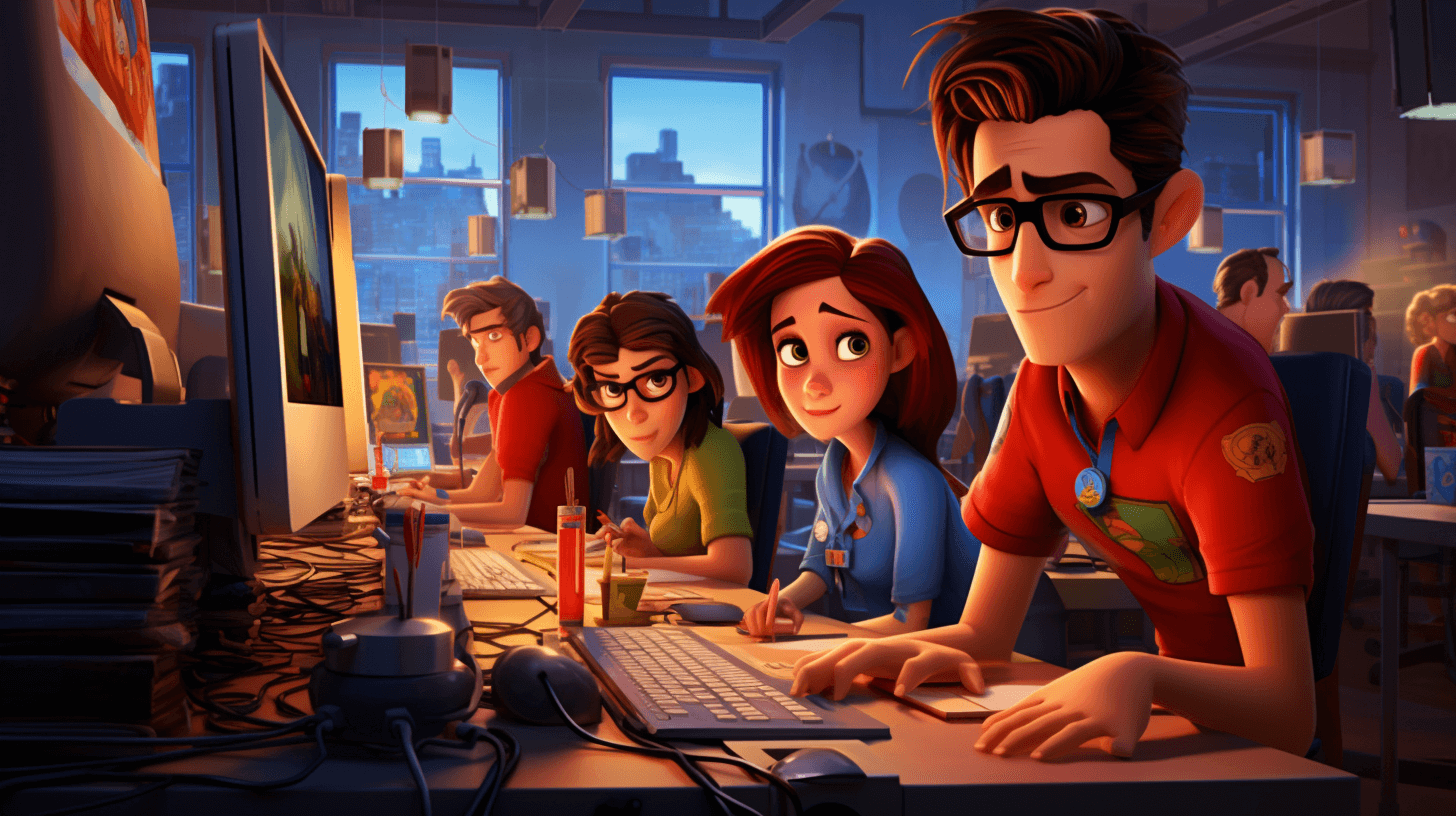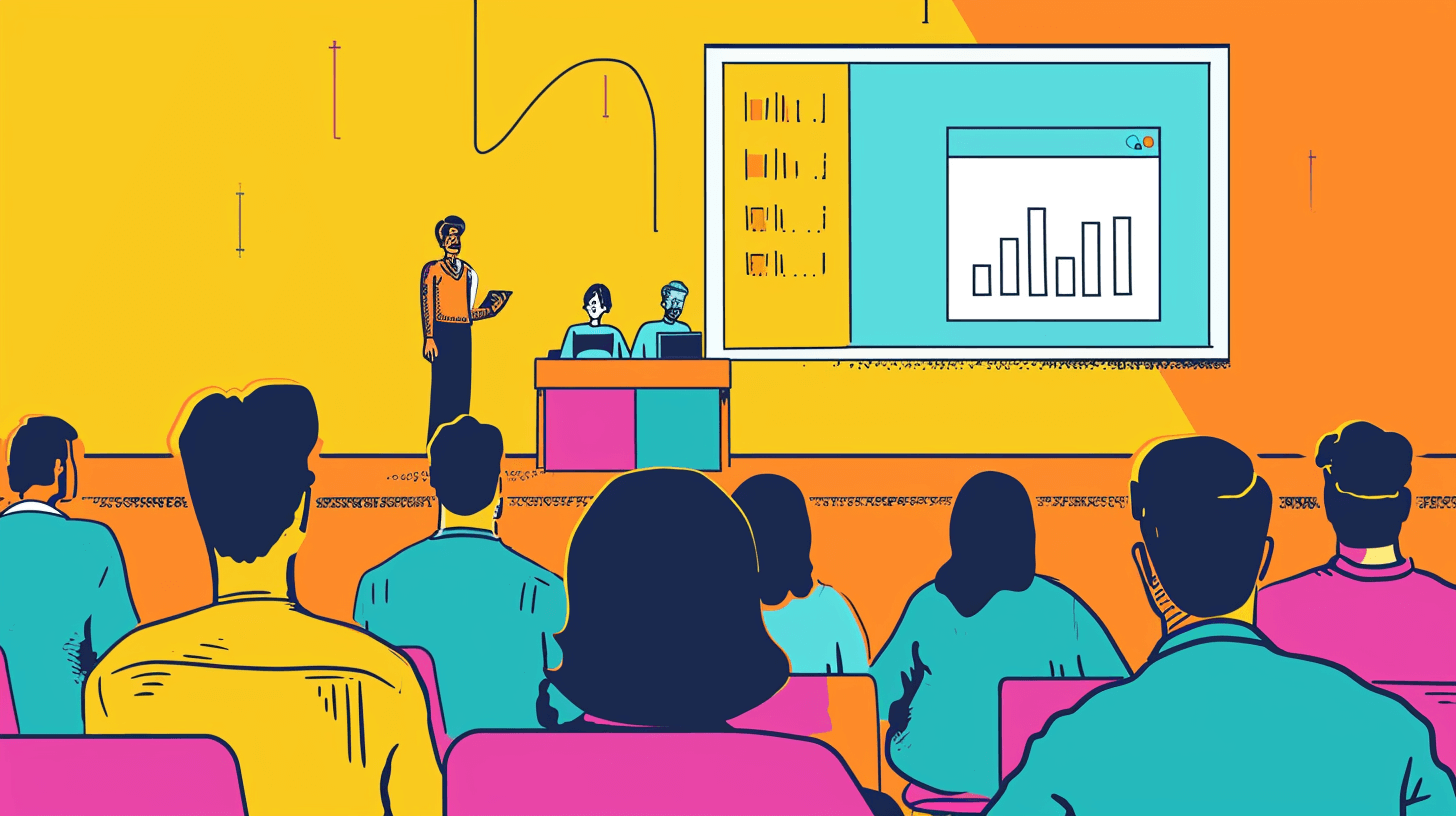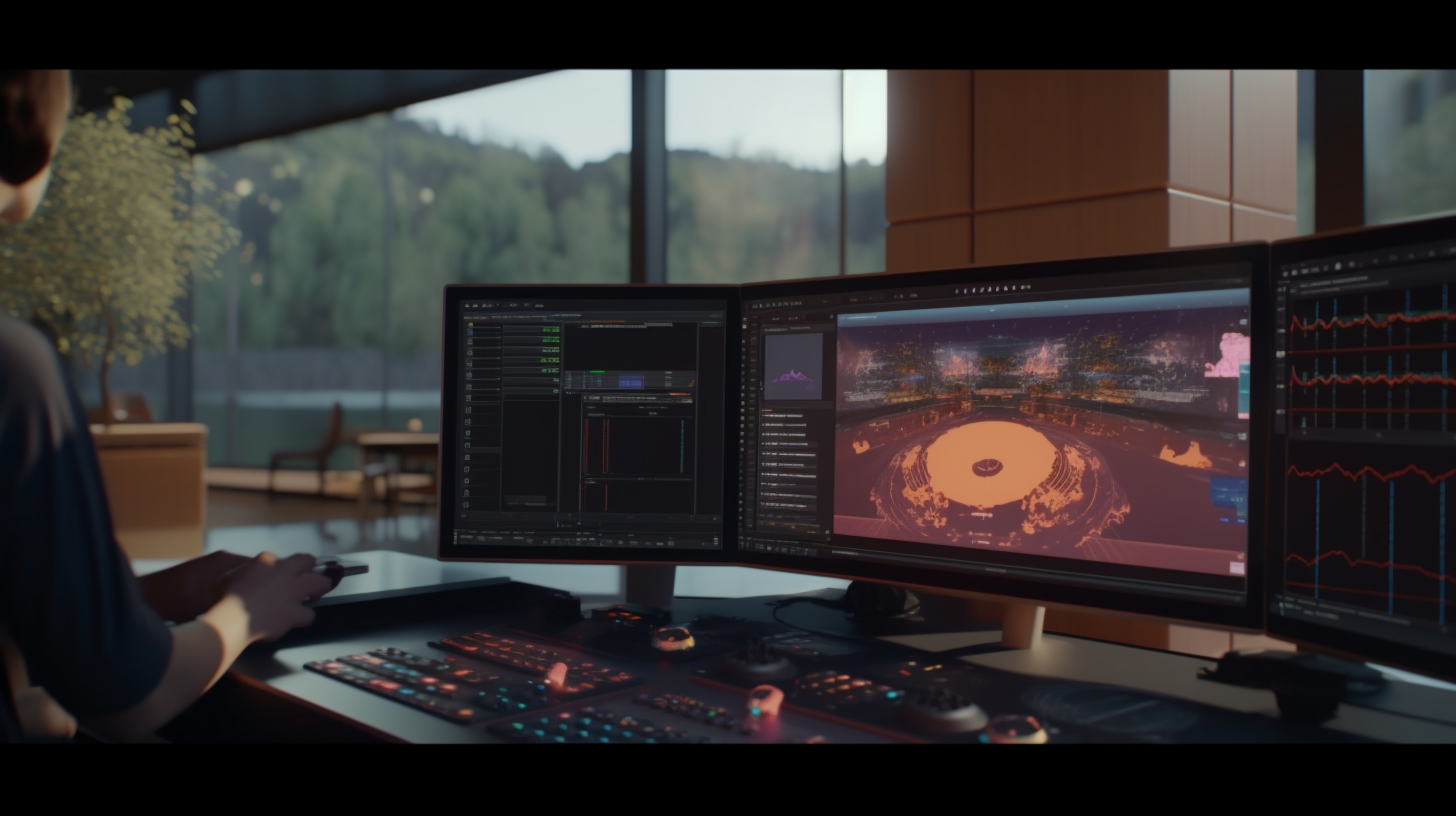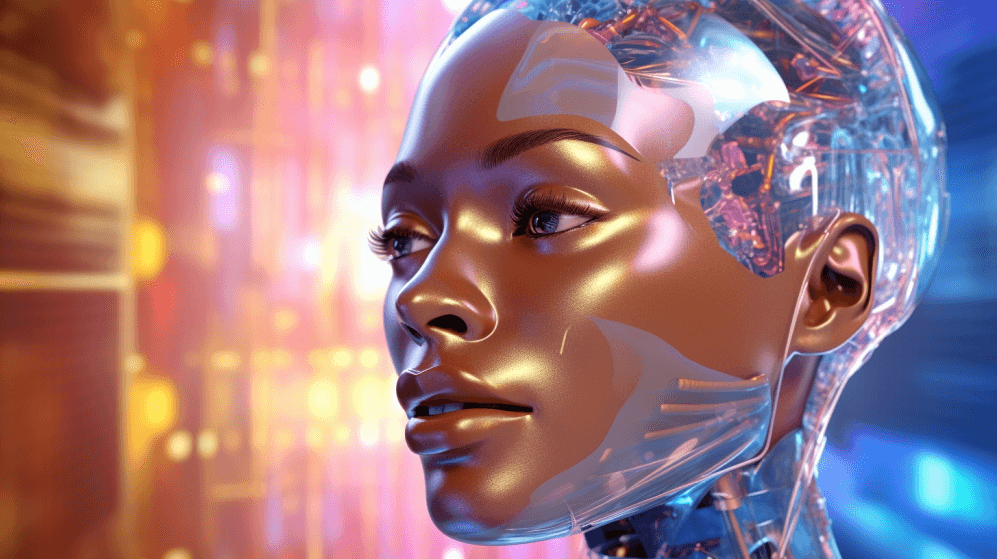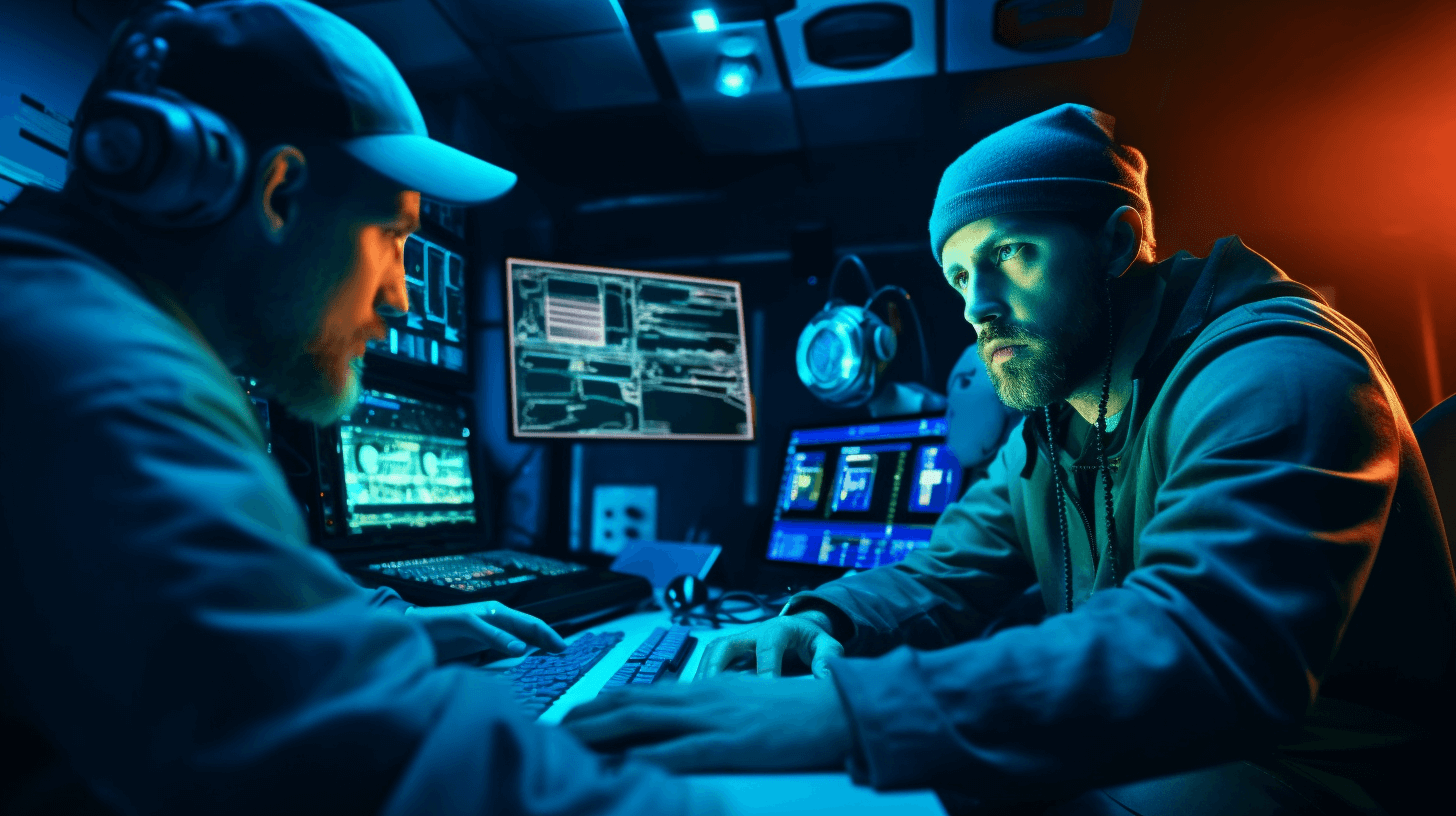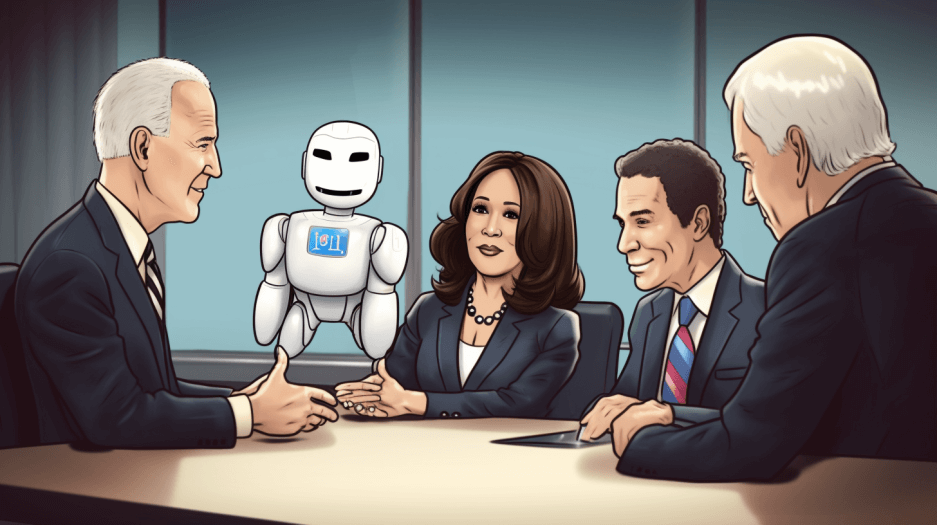🌺 Google’s Big Boss Guy on da Hot Seat Again fo’ Antitrust Grinds 🌺
⬇️ Pidgin | ⬇️ ⬇️ English
Aloha, gang! Check dis out: Sundar Pichai, da head honcho of Google, been on da witness stand again, dis time trying for defend his company from all kine claims dat dey playing monopoly. 🕵️♂️📱
Couple weeks ago, had big kine action fo’ Google up in Washington. Da President wen sign one order fo’ make rules about artificial intelligence, da kine stuff dat could affect Google’s main projects. And da Secretary of State wen give Google one award fo’ helping Ukrainian refugees and promoting women’s economic security.
But brah, Mr. Pichai, he had one noddah kine day. He was in one federal courthouse, not too far from da White House, talking story about how Google no crush their rivals in da search and online advertising worlds.
Den, on Tuesday, he was in San Francisco, facing off against claims from Epic Games. Dey say Google wen break da law with how dey run tings in da Android’s Google Play Store, keeping all da power to themselves.
Looks like Mr. Pichai turning into da face of Google’s antitrust battles, whether he’s on da East or West Coast. And he gotta be sharp on da witness stand, defending his company, whether in court or up on Capitol Hill. 🏛️
Testifying under oath is something plenty tech big shots might have to do pretty soon, with companies like Amazon and Meta getting their own legal beefs. Not every executive is good at dis kine stuff, though.
Remember Bill Gates, da Microsoft guy from da last big tech antitrust case? He came off as kind of combative and evasive when he had to talk story about it.
Lately, guys like Mark Zuckerberg from Facebook and Sam Altman from OpenAI (and Mr. Pichai too) had their turn talking to Congress. Zuckerberg sometimes wen frustrate lawmakers with his kind vague answers, but Altman seemed to win ova da senators earlier dis year.
Mr. Pichai’s main job on da witness stand is for stay cool and on point. He gotta show dat Google is innovative and leads da pack through hard work, not because they doing anything dodgy.
On Tuesday, he wen get some tough questions from Epic’s lawyer, Lauren Moskowitz. She wen push him for give straight “yes” or “no” answers. One small kine revelation: Mr. Pichai confirmed that Google gives Apple 36 percent of da search revenue from iPhones, and last year, da total was “well over $10 billion.” Moskowitz wen say da figure was at least $18 billion. The lawyers for Google and Apple wen try for keep dis stuff quiet, but da judge wen say, “Nah, you guys gotta spill da beans.”
Moskowitz wen try for prove dat Google no can be one monopoly because of their competition with Apple. If dat’s true, why Google wen give Apple better deals than companies like Samsung, who only got 16 percent share?
“We compete hard with Apple,” Mr. Pichai wen say later. “Da competition is good for everybody – consumers and developers.”
Da Justice Department wen file one big antitrust case against Google in October 2020. Dey say Google’s deals with phone makers and browser companies help ’em keep their monopoly illegally.
Two weeks ago, Mr. Pichai, who’s 51, had to stand up for almost four hours because of one sore back. He wen talk about his childhood in India, getting his first telephone, and then wen answer questions about Google’s competition, their relationship with Apple, and da deals da government says was illegal.
He tried for show dat Google paid Apple all dat money for be da default search engine on iPhones because of da “value” of dat spot. “I felt da deal had done well since 2016,” he said. “It was continuing to increase search usage and revenue.”
Adam Kovacevich, one tech industry lobbyist who used to work at Google, said Mr. Pichai did alright. “Your main ting is for not be like Bill Gates in da Microsoft trial. You gotta come off as responsive and reasonable.”
Back in da day, Gates’s testimony wen make him and Microsoft look bad. But in San Francisco, Mr. Pichai managed to keep tings under control, even when he got asked about why he marked emails as attorney-client privilege or whether Facebook and Amazon could’ve been competition for Google’s Play Store.
“There are nuances in these questions,” he said with one smile. “I’m trying to answer your question.” Da judge had to tell Ms. Moskowitz for quiet down couple times so Mr. Pichai could talk.
Dis legal beef get one big difference from da one in Washington: no jury in Washington, only da judge go
in’ decide. But in San Francisco, Mr. Pichai had to talk to one nine-person jury, who might think dat one big tech company is taking advantage of da smaller guys. Epic’s boss guy, Tim Sweeney, also going testify.
Google and Epic neva like talk about it.
Epic, da guys who make Fortnite, wen bring da claim against Google in 2020. Dey trying for avoid paying Google da 15 to 30 percent fees from subscriptions and in-app purchases. Dey wen tell users for pay directly through Epic, so Google and Apple wen kick Fortnite out of their app stores. Epic says Google wen pressure other companies for drop deals with them before dey got banned.
Google also facing another antitrust lawsuit from da Justice Department, saying dey abusing their power over online ads.
Da trial for dat one might start next year, but too early for know if Mr. Pichai gonna have to testify again. He’s trying for keep Google’s employees focused on their work and not da legal drama. He’s telling ’em for “keep doing what you’re doing” and not letting too many people work on da Justice Department case.
But all dis court time taking away from Mr. Pichai’s other kuleana, like getting Google back on top in da world of generative A.I.
On da day of his October testimony, da secretary of state wen give Google’s Poland subsidiary one award, and Mr. Biden had one signing ceremony at da White House. But Mr. Pichai couldn’t guarantee he’d be free, cause he might have still been in court.
“It’s not the best use of his time,” said Richard Kramer, one analyst. “No C.E.O. likes to spend their time getting grilled by government lawyers.”
NOW IN ENGLISH
🌺 Google’s CEO Grapples with Antitrust Allegations Again 🌺
Hey everyone, listen up! Sundar Pichai, the big boss of Google, found himself on the antitrust witness stand once more, this time in a San Francisco courtroom, battling against monopoly accusations. 🏢🔍
Just a couple of weeks back, Google was making headlines in Washington. President Biden was busy signing an executive order for artificial intelligence safeguards, affecting Google’s big projects. Meanwhile, Secretary of State Antony J. Blinken was awarding Google for its efforts in helping Ukrainian refugees and promoting women’s economic security.
But Pichai had his own battles to fight. He spent a good chunk of that day in a federal courthouse, defending Google against claims that they were squashing competition in search and online advertising.
Then, on Tuesday, Pichai was testifying again, facing off against allegations from Epic Games that Google was misusing its power over app developers on Android’s Google Play Store.
Over the past month, Pichai has become the face of Google’s antitrust court battles from coast to coast. His appearances on the witness stand highlight how crucial it is for tech leaders to be skilled at defending their companies, be it in court or before Congress. 🏛️
With companies like Amazon and Meta facing their own legal challenges, many tech CEOs might soon find themselves in Pichai’s shoes. And let’s just say, not every executive shines in this role.
Remember Bill Gates during Microsoft’s big antitrust case over two decades ago? His combative and evasive demeanor in depositions wasn’t exactly a win for him.
More recently, executives like Facebook’s Mark Zuckerberg and OpenAI’s Sam Altman have had mixed results when testifying before Congress. Zuckerberg’s vague responses often left lawmakers frustrated, while Altman seemed to charm senators earlier this year.
For Pichai, a low-key and detail-oriented leader, the main goal on the stand has been to keep calm under pressure and drive home Google’s primary defense: that their success comes from innovation and hard work, not monopolistic practices.
Tuesday’s session saw Pichai facing tough questioning by Epic’s lawyer, Lauren Moskowitz, who pushed for straight “yes” or “no” answers. During the questioning, Pichai revealed that Google paid Apple over $10 billion last year for search revenue on iPhones, a figure Moskowitz claimed was at least $18 billion. Lawyers for Google and Apple had tried to keep these figures under wraps, but the judge wasn’t having it.
Moskowitz aimed to debunk Google’s claim that it’s not a monopoly due to competition with Apple. If so, why offer Apple a sweeter deal than companies like Samsung, which reportedly received a smaller share of search revenue from its devices?
Pichai maintained that Google fiercely competes with Apple at various levels, benefiting consumers and developers alike.
The Justice Department’s landmark antitrust suit against Google, filed in October 2020, argues that Google’s default-search deals helped it maintain an illegal monopoly.
Two weeks ago, Pichai stood for nearly four hours during his testimony due to a sprained back, speaking as if at a corporate conference. He recounted his childhood in India, the power of technology, and answered questions about Google’s competitive standing and relationship with Apple.
Pichai’s task was to refute claims that Google paid Apple billions to keep it out of the search market, emphasizing the value of being the iPhone’s default search engine and the need to ensure a quality user experience.
Adam Kovacevich, a tech industry lobbyist and former Google employee, noted that Pichai’s performance was solid, with his main objective being to appear responsive and reasonable, unlike Gates in the Microsoft trial.
In San Francisco, Pichai navigated a range of topics, from marking emails as privileged to the potential competition from Facebook and Amazon.
The antitrust trial in Washington differs from the San Francisco case, as it’s decided by a judge rather than a jury. Pichai’s task in San Francisco was to convince a nine-person jury, potentially open to the notion that a giant tech firm could be exploiting smaller companies. Epic’s CEO, Tim Sweeney, is also expected to testify.
Both Google and Epic have refrained from commenting on the ongoing legal battle.
Epic, known for the hit game Fortnite, sued Google in 2020, trying to circumvent the 15 to 30 percent fees on in-app purchases and subscriptions charged by Google. The game developer accused Google and Apple of suspending Fortnite from their app stores in response to Epic’s direct payment method to users. Epic also claims Google pressured other companies to abandon deals with them before the app store ban.
Google faces another Justice Department antitrust lawsuit accusing it of abusing its online ad monopoly. That trial could start as early as next year, but it’s uncertain if Pichai will testify again.
In the midst of these legal battles, Pichai is encouraging Google employees to stay
focused on their work. He’s only allocated a small team to handle the Justice Department case, emphasizing the importance of continuing their projects, especially in the growing field of generative A.I.
While Pichai was testifying in October, Google’s subsidiary in Poland was being honored by Secretary Blinken, and President Biden was hosting a signing ceremony at the White House. Unfortunately, Pichai’s court obligations meant he couldn’t confirm his attendance.
“It’s not the best use of his time,” observed Richard Kramer, an analyst, noting that no CEO wants to spend their time grilled by government lawyers.

